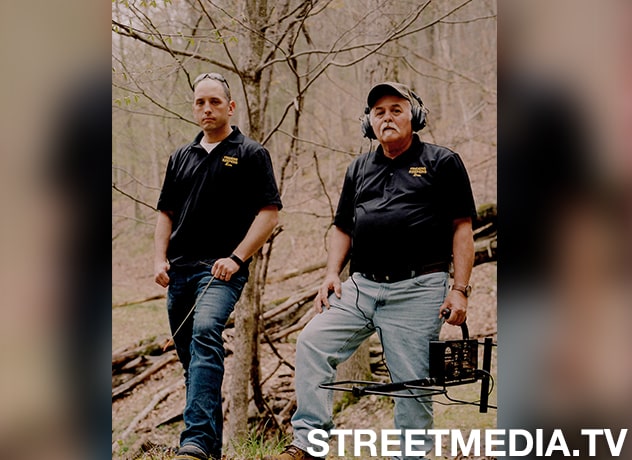Treasure Hunter Sues FBI Over 7 Tons of Civil War-Era Gold Bullion

In 2018, Dennis Parada and his team of treasure hunters made a stunning discovery that promised to change their lives forever. They had discovered a cache of Civil War-era gold bullion, coins, and bars in a remote part of Pennsylvania. The treasure was estimated to be worth millions of dollars, and Parada and his team were ecstatic at the prospect of receiving recognition and compensation for their hard work.
However, things quickly took a turn for the worse. After reporting their discovery to the FBI, Parada and his team claim that they were threatened with arrest and told to keep quiet about their find. The FBI had already been investigating the site where the gold was found for years, and had obtained a warrant to dig up the area. But they allegedly failed to notify Parada and his team of their plans, and instead dug up the gold in secret, under the cover of darkness.
Parada and his team were understandably outraged by the FBI’s actions, and in 2023 they have filed a lawsuit against the agency. They allege that the FBI violated their constitutional rights, and are seeking compensation for their lost treasure.
Parada’s quest for the gold began in the 1980s when he and his son Keith began searching for a legendary cache of gold rumored to have been buried in the hills of Pennsylvania by Union soldiers during the Civil War. After years of searching, Parada and his team discovered the gold in 2018, which was worth millions of dollars.
However, shortly after the discovery, the FBI appeared at the site and claimed that they had the authority to take the gold under the Antiquities Act of 1906. The FBI argued that the gold was a part of the United States’ historical heritage and that it should be preserved for the benefit of all Americans.
Parada disputes the FBI’s claim, arguing that the gold was never officially declared to be a part of the national heritage and that it had not been claimed by any government agency before he discovered it. Parada also claims that the FBI’s seizure of the gold violated his Fourth and Fifth Amendment rights, as he was not given a warrant or due process of law before the gold was taken.
The case has sparked intense public interest, with many people expressing sympathy for Parada and his team. Some have criticized the FBI for its heavy-handed tactics, while others have expressed concern about the way in which government agencies interact with ordinary citizens.
Many people are arguing that Parada has a right to the gold since he discovered it after years of searching. Others have claimed that the FBI is correct in asserting its authority over the gold, as it is a valuable part of the nation’s history that should be preserved for future generations.
At the heart of the matter is a fundamental question about the rights of treasure hunters. Should they be entitled to compensation for their finds, or should the government be able to take possession of valuable artifacts for the public good?
The answer is not clear-cut. Treasure hunting is a complex and sometimes contentious activity, and there are many different opinions about how it should be regulated. Some argue that treasure hunters are essential for uncovering hidden pieces of history that might otherwise be lost forever. Others worry that treasure hunting can lead to looting, destruction, and damage to important archaeological sites.
The case is currently ongoing, and the outcome remains uncertain. Parada is seeking compensation for the value of the gold and the return of his property, while the FBI is arguing that it has the right to hold onto the gold as a part of the nation’s historical heritage.
The controversy surrounding the case highlights the complex legal issues surrounding the ownership of historical artifacts and the regulation of treasure hunting. As the case unfolds, it will likely attract further attention from scholars, legal experts, and the public, and could have significant implications for the future of treasure hunting and the ownership of valuable objects.
Whatever the outcome of the lawsuit, the story of Dennis Parada and his team is a reminder of the challenges and controversies that surround the world of treasure hunting. It also highlights the importance of clear communication and mutual respect between treasure hunters and government agencies. Ultimately, it will be up to the courts to decide whether Parada and his team were wronged by the FBI, or whether the government was acting in the public interest when it seized the gold.



